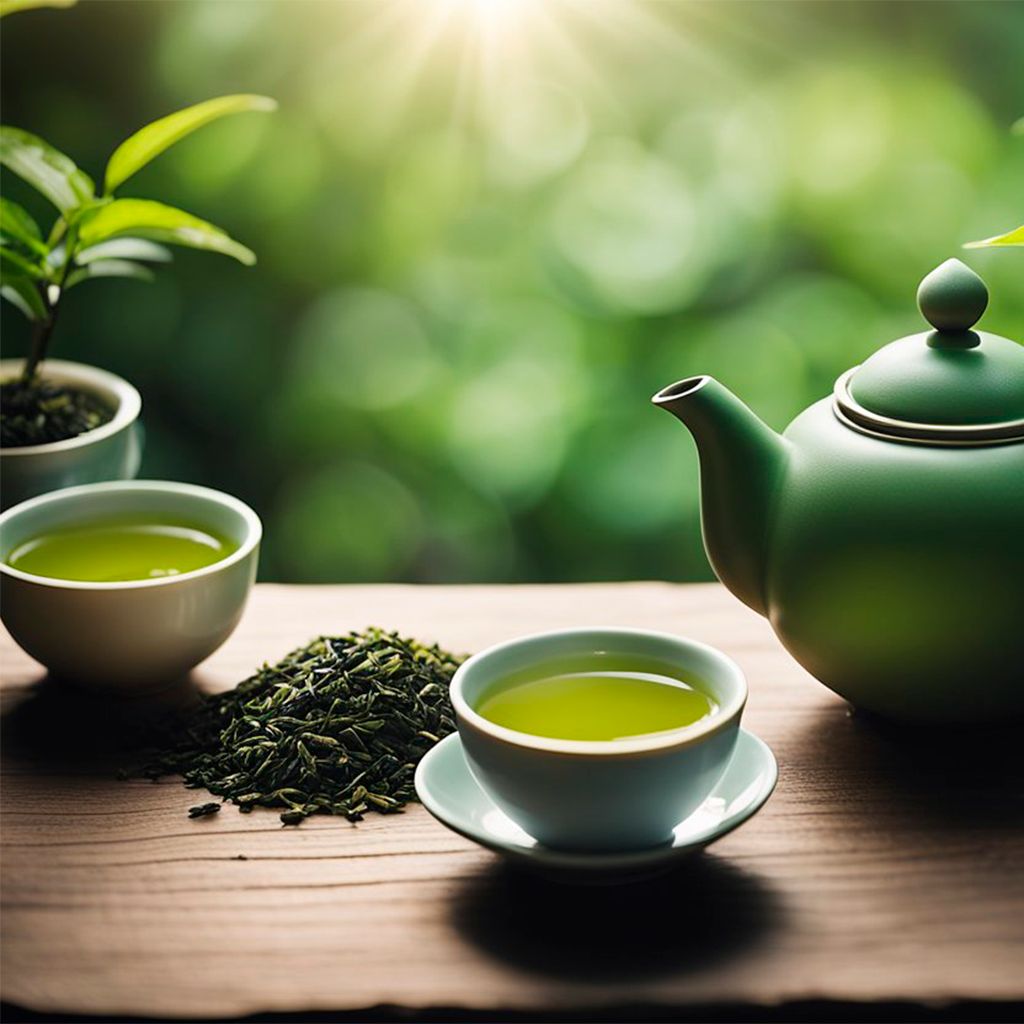Echinacea Tea: Benefits, Uses, and How to Prepare
Echinacea, a plant native to North America, has been used for centuries by indigenous peoples as a natural remedy for a variety of health issues. Today, echinacea tea is widely known for its medicinal properties, especially when it comes to strengthening the immune system. This article will explore in detail the benefits of echinacea tea, how to prepare it, the best practices for its consumption, and the precautions to take when using it. Below, we will cover everything you need to know to incorporate this powerful natural remedy into your daily routine.
History and Origins of Echinacea
Echinacea is a perennial plant that belongs to the daisy family and is native to central and eastern North America. There are nine species of Echinacea, the most common of which are Echinacea purpurea, Echinacea angustifolia, and Echinacea pallida. These plants were widely used by Native Americans, who made teas, poultices, and other preparations from the roots and leaves to treat a variety of conditions, including infections, wounds, and insect bites. In the late 19th and early 20th centuries, Echinacea began to gain popularity in Europe, where it was adopted by herbal medicine as a powerful natural remedy. Today, it is used worldwide as a health supplement, especially for treating and preventing colds and flu.
Chemical Composition and Medicinal Properties
Echinacea is rich in bioactive compounds, including alkamides, polysaccharides, flavonoids, and glycoproteins, which are responsible for its medicinal properties. These compounds have been studied extensively, and research indicates that they can stimulate the immune system, reduce inflammation, and fight infections.
1. Stimulation of the Immune System
Echinacea is perhaps best known for its ability to strengthen the immune system. Studies suggest that compounds in the plant can increase the production of white blood cells, which are the cells in the body responsible for fighting infections. Additionally, Echinacea can stimulate the activity of macrophages, cells in the immune system that engulf and destroy invading microorganisms.
2. Anti-inflammatory properties
Another important benefit of Echinacea is its ability to reduce inflammation. Alkamids, in particular, are known for their anti-inflammatory effects. They work by inhibiting the production of inflammatory compounds in the body, which can be useful in treating chronic inflammatory conditions such as arthritis.
3. Antiviral and Antibacterial Effect
Echinacea also has antiviral and antibacterial properties, which can help prevent and treat infections. Studies suggest that regular consumption of Echinacea can reduce the severity and duration of colds and flu, as well as help prevent these illnesses.
4. Skin Health
In addition to its effects on the immune system, Echinacea is also beneficial for the skin. Its anti-inflammatory and antioxidant properties can help treat conditions like acne and eczema, as well as promote wound healing.
Benefits of Echinacea Tea
Echinacea tea is one of the most popular ways to consume this medicinal plant. By preparing and drinking the tea, you can enjoy all the benefits mentioned above, as well as enjoying a warm and comforting drink. Below, we will detail the main benefits of Echinacea tea.
1. Prevention and Treatment of Colds and Flu
Echinacea tea is widely used as a natural remedy for preventing and treating colds and flu. The plant helps boost the immune system, making the body more resistant to viral and bacterial infections. When consumed at the first signs of a cold or flu, Echinacea tea can help reduce the severity of symptoms and speed up recovery.
2. Relief of Respiratory Symptoms
In addition to preventing colds and flu, Echinacea tea can be beneficial in relieving respiratory symptoms such as nasal congestion, sore throat, and cough. Its anti-inflammatory properties help reduce inflammation in the airways, while its antiviral and antibacterial properties help fight the infections that cause these symptoms.
3. Mental Health Support
Regular consumption of Echinacea tea may have a positive effect on mental health. Studies suggest that Echinacea may help reduce symptoms of anxiety and depression. Although the exact mechanism is not yet fully understood, it is believed that the alkamides present in the plant may influence cannabinoid receptors in the brain, which are involved in mood regulation.
4. Promoting Skin Health
As mentioned earlier, Echinacea has proven benefits for skin health. The tea can be consumed internally or applied topically to treat conditions such as acne, eczema, and minor wounds. Regular consumption of Echinacea tea may also help prevent premature skin aging, thanks to its antioxidant properties.
5. Fights Inflammation
Echinacea tea is an excellent option for those suffering from chronic inflammatory conditions, such as arthritis. The plant’s anti-inflammatory properties can help reduce the pain and swelling associated with these conditions, providing relief and improving quality of life.

How to Make Echinacea Tea
Making Echinacea tea is simple and can be done with different parts of the plant, including the leaves, flowers, and roots. Below, we share some basic recipes and tips to ensure you get the most out of your tea.
Classic Echinacea Tea Recipe
Ingredients:
- 1 to 2 teaspoons dried Echinacea leaves, flowers, or roots
- 250 ml of water
- Honey or lemon to taste (optional)
Preparation method:
- Boil water in a pot or kettle.
- Add dried Echinacea to boiling water.
- Let it steep for about 10 to 15 minutes.
- Strain the tea into a cup and add honey or lemon if desired.
Echinacea Tea with Ginger and Lemon
For an extra boost to your immune system, you can combine Echinacea with ginger and lemon. Ginger is known for its anti-inflammatory and digestive properties, while lemon is an excellent source of vitamin C.
Ingredients:
- 1 to 2 teaspoons dried Echinacea leaves, flowers, or roots
- 1 piece of fresh ginger (about 2 cm), sliced
- Juice of 1 lemon
- 250 ml of water
- Honey to taste (optional)
Preparation method:
- Boil water in a pot or kettle.
- Add the dried Echinacea and ginger to the boiling water.
- Let it steep for about 10 to 15 minutes.
- Strain the tea into a cup, add lemon juice and honey to taste.
This combination is especially helpful during the winter months when your immune system may need an extra boost.
Echinacea Iced Tea with Mint
If you prefer cold drinks, Echinacea tea can also be consumed iced. The addition of mint gives it a refreshing flavor and increases the digestive benefits of the drink.
Ingredients:
- 1 to 2 teaspoons of dried Echinacea leaves, flowers or roots
- 5 to 6 fresh mint leaves
- 500 ml of water
- Ice to taste
Preparation method:
- Boil water in a saucepan or kettle.
- Add dried Echinacea to boiling water and steep for 10 to 15 minutes.
- Let the tea cool, then add the mint leaves and transfer to a glass container.
- Refrigerate for at least 1 hour.
- Serve over ice and garnish with additional mint leaves.
Echinacea Tea with Cinnamon and Cloves
For a more robust-tasting tea, try adding cinnamon and cloves to your Echinacea tea. These spices not only add flavor, but also have their own medicinal properties, such as improving digestion and fighting infections.
Ingredients:
- 1 to 2 teaspoons dried Echinacea leaves, flowers or roots
- 1 cinnamon stick
- 2 to 3 cloves
- 250 ml water
- Honey to taste (optional)
Preparation:
- Boil water in a saucepan or kettle.
- Add dried Echinacea, cinnamon and cloves to boiling water.
- Insert for 10 to 15 minutes.
- Strain the tea into a cup and add honey, if desired.
This version of tea is perfect for colder days when you want a warm, comforting drink.
Tips for Safe Use of Echinacea
While Echinacea is generally safe for most people, it is important to follow a few guidelines to ensure its safe and effective use.
1. Consult a Doctor Before Prolonged Use
If you plan to consume Echinacea tea regularly or for extended periods, it is advisable to consult a doctor, especially if you have pre-existing health conditions or are taking other medications.
2. Avoid Excessive Use
As with any supplement, excessive use of Echinacea can lead to side effects. It is recommended to limit your consumption of Echinacea tea to no more than three cups per day and to take regular breaks from use.
3. Be Aware of Allergic Reactions
People who are allergic to plants in the daisy family, such as ragweed, chrysanthemum, calendula, and dandelion, may be sensitive to Echinacea. If you have a history of allergies to these plants, avoid using Echinacea or perform a patch test before consuming it.
4. Avoid During Pregnancy and Breastfeeding
Although there is no conclusive evidence that Echinacea is harmful during pregnancy or breastfeeding, it is advisable to avoid using Echinacea supplements during these periods unless under medical advice.
Conclusion
Echinacea tea is a powerful and versatile beverage that can provide a range of health benefits, from boosting your immune system to promoting healthy skin and reducing inflammation. With a variety of preparation methods and ingredient combinations, it’s easy to incorporate echinacea tea into your daily routine. However, like any natural remedy, it’s important to use it wisely and in moderation, and consult a healthcare professional when necessary.
References:
Can Echinacea be a potential candidate to target immunity, inflammation, and infection – The trinity of coronavirus disease 2019
https://www.ncbi.nlm.nih.gov/pmc/articles/PMC7870107/
Echinacea biotechnology: advances, commercialization and future considerations
https://www.ncbi.nlm.nih.gov/pmc/articles/PMC6179083/
recommended posts:
Banana Tea
Garlic Tea
Green Tea





